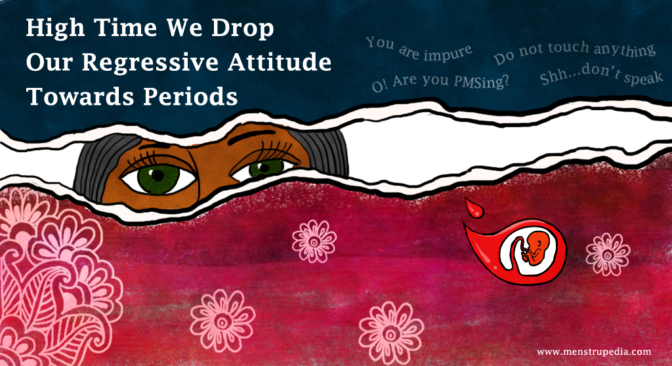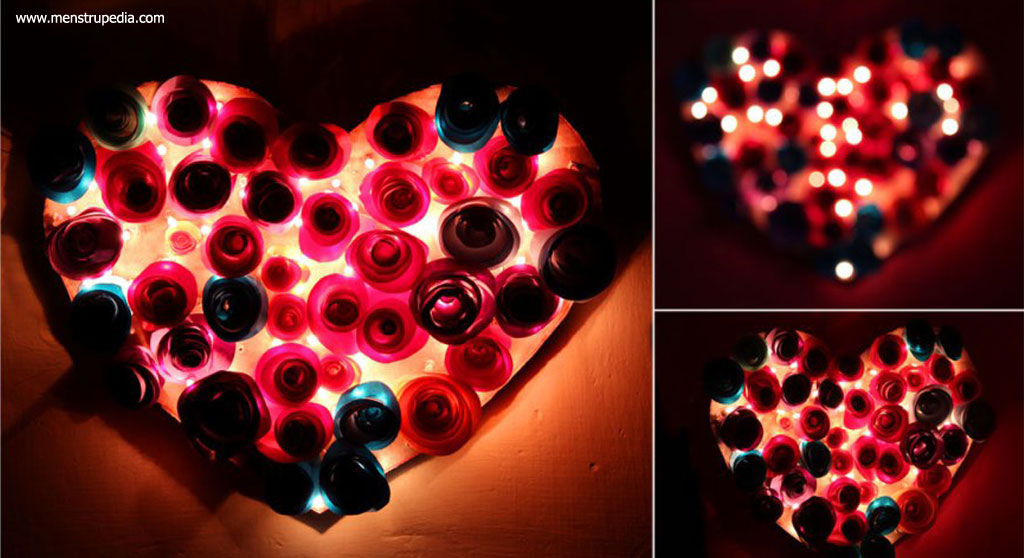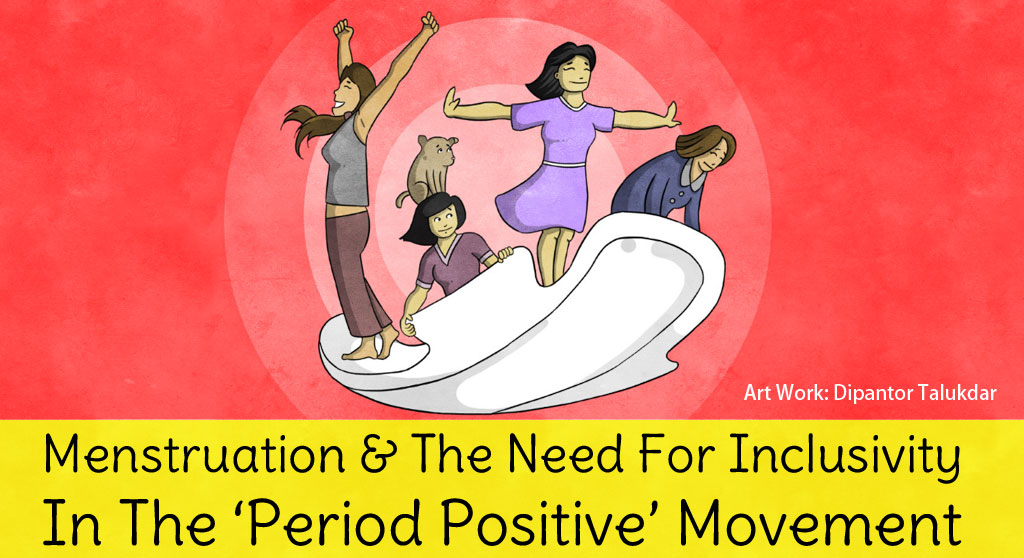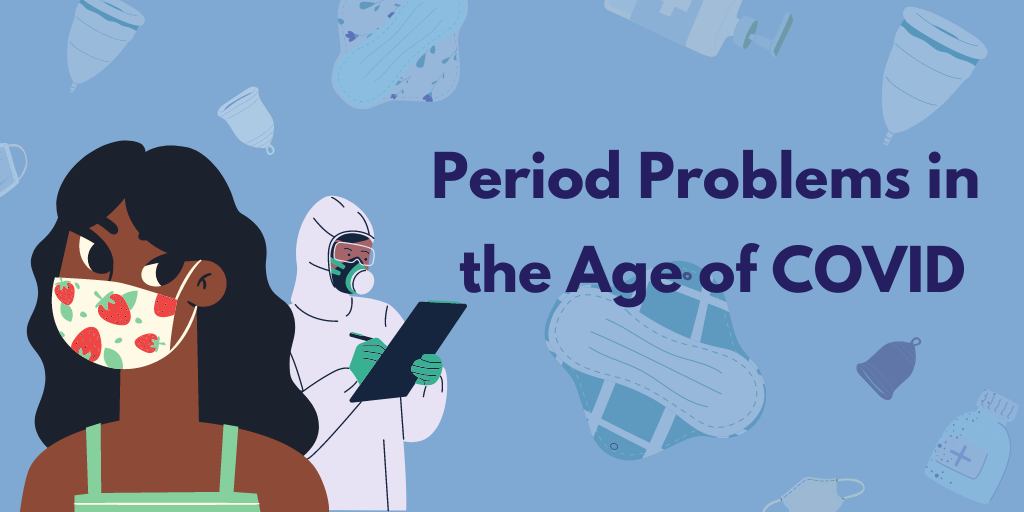Any references to the word ‘period’ are always made in hushed tones or various euphemisms are used such as ‘blunder days,’ ‘that time of the month’ or ‘leak days.’Red blood seems to have drawn all of India into a pool of bloodied awkwardness where half of the human bodies go through the same process every month and yet the feelings of awkwardness remains. Where families welcome new-born with every grand preparation possible, yet the processes behind childbirth are cringe-worthy for many people. Oldies in the family will ask you to stay miles away from sacred temples and from deities, while the real goddesses of the family are completely isolated for three longs days with different bedding arrangements being made and restrictions from touching other family members imposed. Women begin to wonder, is it a crime to be a woman?
The entire process of menstrual taboos revolves around so many senseless myths, which are deeply rooted in our culture. Periods supposedly make women impure and dirty. The basis of this myth dates back to Vedic narratives where Indra slew Vritra and where the guilt of slaying manifests every month as menstrual flows in women. While the scientific cause of menstruation is about the process of ovulation, this illogical idea of considering ovulating women to be impure shows a lack of awareness among the masses. These myths are leading us down a dangerous path of unawareness where women’s health is compromised as a result.
Myths surrounding this natural bodily cycle are much more in number than the stars in the sky. Well, Indians are quite creative in coming up with the most innovative of myths; various countries have competed in this sphere too in proposing new myths that range from how having sex with your partner while on periods can eventually kill him to touching flowers with your impure menstruating hands increasing the certainty of the flower dying.
According to many Hindus, women are to be prohibited from marching along leading normal lives especially when it comes to natural processes being considered unnatural especially if it goes against some set or acceptable customs. For instance, red blood is commonplace if it comes out from any other part of the body but it becomes suddenly unacceptable if it bleeds out of a vagina.
Imagine asking for a leave due to menstrual cramps where you confidently march towards your boss’ office with feminism oozing out of you, but the sight of the boss’ completely expressionless face dances in front of your eyes. You head back to your cubicle clutching your stomach and try hard to sooth the demonic pain gnashing out at you. Pretty harsh, but it’s the reality of many working women. Such ignorance is so deeply rooted that men are not able to decrypt the common codes of ‘that time of the month’ and they consider woman to be unreasonable because of their sudden mood swings.
Oldies are also there to project all their wrath on to you in spite of enlightening and supporting you with their years of experience but they will also busy themselves by highlighting all the blunders you make such as touching of holy books and entering the kitchen which apparently is nothing short of criminal. You start imagining the world to be so strange and these thoughts become the budding seeds where you start to slowly internalize and eventually emulate the same patterns followed by the previous generations. Awareness is slipping away in every possible manner; many brains still remain untouched. Changes are surely coming our way but at a snail’s pace while damaging myths are spreading everywhere with the speed of forest fires.
No one talks openly about these issues where in Nepal the conditions are even more severe, where women are locked into menstrual huts and entirely isolated with no supply of food or water. Those sinless women must be so broken that they surely start cursing the biological process and where the feeling of self-acceptance flies miles away as the same cycle repeats time and time again. However, potential awareness slowly but positively is landing on the fertile land of unawareness. The reach of pads is so limited in rural areas that women are forced to use dirty rags, old cloths and newspapers to stem menstrual flow; germs creeping inside stomachs caused amage to fragile reproductive organs. On the grounds where tradition is so near and dear to the people, why isn’t there the acceptance of something so natural? Of course one must give thanks to the movie industry where movies like Padman are waiting in queue for release, but obviously a lot of controversies surround these natural topics, which for India is generally not so natural to be freely spoken about.
Maybe the time will come where instead of blue liquids, red liquids will be used in sanitary pad advertisements. Where sanitary napkins won’t be handed over in big black plastic bags as if you are carrying a secret weapon. Let’s hope for a changed and more mature India. Let’s hope for a country that takes care of its menstruating women and honours them for all the hurdles that they overcome every single month. Let’s face this issue with wisdom and spread awareness wherever possible.

Author: Rashmi Adwani
Rashmi is based in Mumbai and writes about women’s health awareness on several health and social blogs. She works with CURRAE Hospital for creating awareness among the masses in women’s health.
Ref: https://www.ncbi.nlm.nih.gov/pmc/articles/PMC4408698/








